Taking time each quarter to plan for and organize your homeschool will help you have the most successful homeschool possible. After more than 20 years of teaching my kids at home, I’ve finally got to a place where I can set goals, make priorities, and avoid many of the pitfalls of poor planning organization.
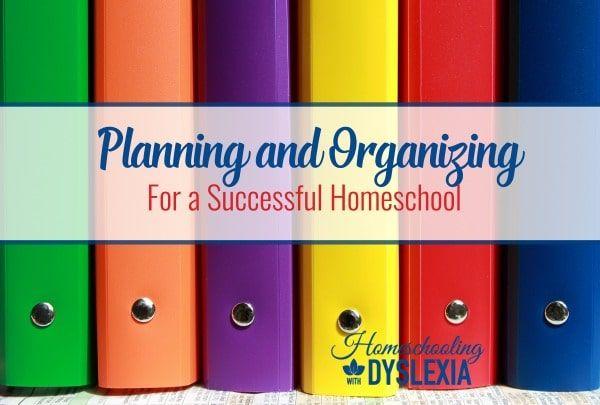
Having a smoothly running, productive homeschool doesn’t just happen though. It takes a few hours of effort every quarter or so to refocus on your priorities and realign your schedule and curriculum to that focus.
I created this page to include all of my planning and organizing posts so that they can be accessed in one easy place. Bookmark this page for future reference as this page will be updated with any new posts that I write.
Homeschool Planning Posts
From setting goals, planning a schedule, and choosing curriculum, a lot goes in to planning for your homeschool each year. Click the images to read each post of interest.
Download my free ebook on how to get started homeschooling kids with dyslexia. I wrote this 50-page book to include everything I wish I knew before I started homeschooling my own kids with dyslexia.
Planning, prioritizing, and teaching kids with dyslexia is different than planning, prioritizing, and teaching traditional learners. A series of posts that covers setting goals for kids with dyslexia, creating schedules that really work, how (and what) to prioritize and how to make sure those things get done, and how to handle your homeschool expectations.
The Orton-Gillingham method of teaching reading has been shown to have incredible results with kids and adults with dyslexia. Learn more about what OG is and how to structure each lesson to include the elements of an OG lesson. Includes a free, downloadable OG Reading Lesson Planner.
This post contains a simple, systematic method to unclutter your brain and organize and prioritize your homeschool plans.
There is only so much time in a day, right? This post contains simple strategies for creating a realistic schedule that not only includes curriculum and academics but also toddlers, chores, and time for mom!
I talk to lots of moms homeschooling kids with dyslexia who are having trouble getting to much besides reading and math. This post contains tips and strategies for getting to those other subjects and having peace about how much you’re getting done.
Orton-Gillingham reading programs can have a lot of moving parts. It’s just the nature of the hands-on, multi-sensory methods. Learn strategies for organizing your stuff and your time for a great year of reading!
Looking back at your homeschool year (or semester) can provide tons of valuable information on what direction to go in the new school term. Read this post for a step-by-step guide for assessing what’s working and what’s not in your homeschool and use that information to plan, prioritize, and schedule for the coming term.
Looking for the best curriculum for your kids with dyslexia? This epic post contains all the information you need to choose and find curriculum for your kids with dyslexia. Includes lists of curriculum choices by grade.
I am a productivity geek. I love studying and learning about ways to be get more done. It’s what helps me to run a blog and homeschool and still remain reasonably sane! Learn 6 of my favorite homeschool productivity hacks in this post.
Homeschool Troubleshooting Posts
It’s happened to all of us – especially when there is a houseful of dyslexic kids!
I talk to many moms who pull their kids out of public or private school in order to give them the individualized education they need. Often these kids are anxious, resistant to school, and even depressed. This post contains strategies for helping your child rediscover their love of learning, reconnect with you as teacher/parent, and start learning successfully at home.
This is a question that I ask myself continually. Using real life examples, I detail how our daily lessons look and how we handle set backs and struggles.
What do you do when your child’s reading progress is slow and inconsistent? This post contains 3 insights that are applicable to all homeschool families dealing with slow reading progress.
It can take time to find a curriculum that is a good fit for your family. Here are 5 questions to ask when your homeschool curriculum doesn’t appear to be working.
Are you struggling with your homeschool curriculum? Before you list it on ebay and choose another program, read this post full of ideas on how to modify your current homeschool curriculum to better fit your family’s needs.
Homeschool Dyslexia Resources
This post includes information on the best homeschool reading programs for kids with dyslexia. I have used and reviewed all of these programs and know that they contain all the elements of an effective , research-based reading curriculum.
As the parent of a child with dyslexia, you should be embracing the use of assistive technology. Not just any app will do however. This extensive list of assistive technology apps includes descriptions and links to apps specifically for people with language-based learning issues.
From games and specialized paper, to tutoring services and reading programs, this list of 100 Best Resources for Teaching Kids With Dyslexia is full of tools that will help you on your journey.
Many kids with dyslexia also struggle with math. The same hands-on, multi-sensory methods for teaching reading effectively work for teaching math. This epic resource includes curricula, games, toys, books, apps, and other assistive technology.
Teaching kids with dyslexia can be expensive. This post contains lists of free resources for teaching kids with dyslexia.
Schedule a Homeschool Consultation
Sometimes it helps to talk to someone who has the experience and knowledge to provide just the right guidance you need for your unique situation.
Marianne offers Homeschool Consulting in the following areas:
- Setting unique goals and priorities
- Strategies for scheduling
- Choosing a homeschool method
- Choosing the best homeschool curriculum
- How to modify current curriculum
- Which accommodations will help your child
- Understanding your child’s unique learning style
- Encouragement and support
Visit our Homeschool Consulting Page for more information or to schedule a consult.

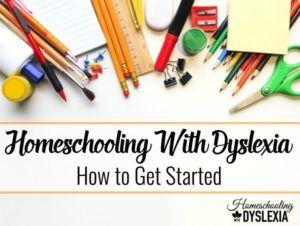
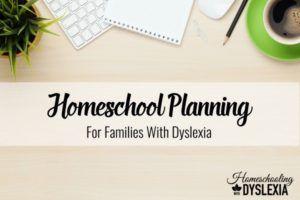
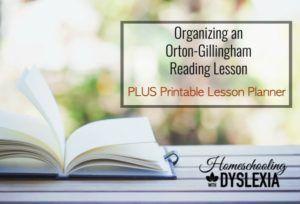
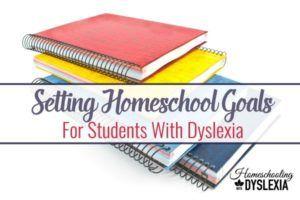
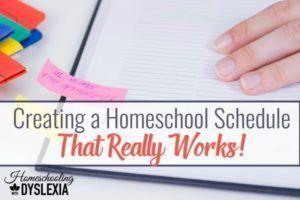
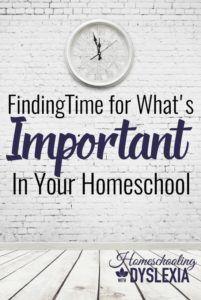
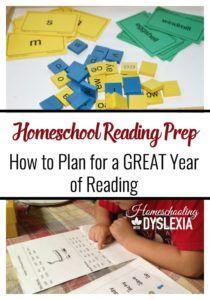
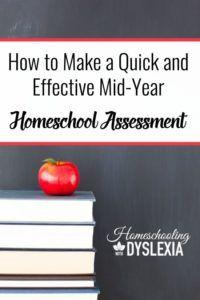
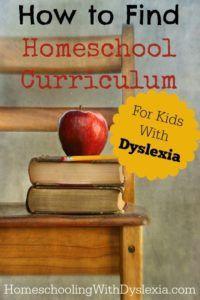

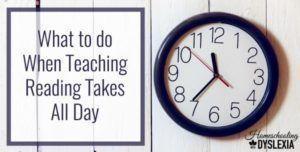
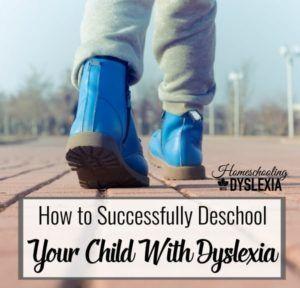
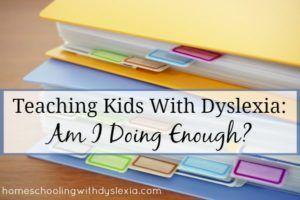
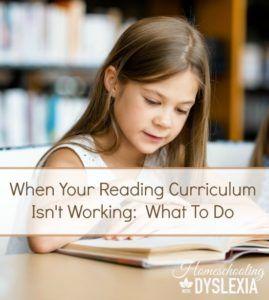
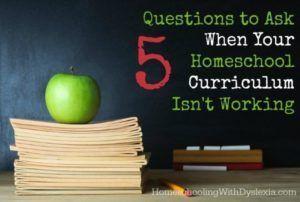
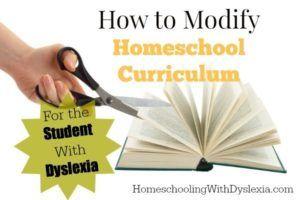
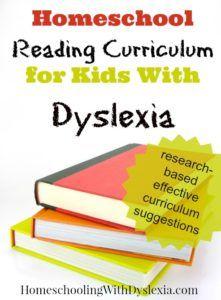

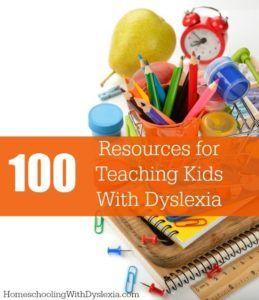
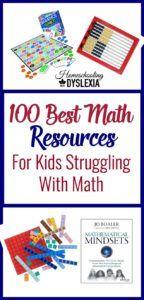
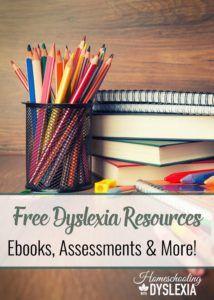






What about homeschooling 9th graders with dyslexia?